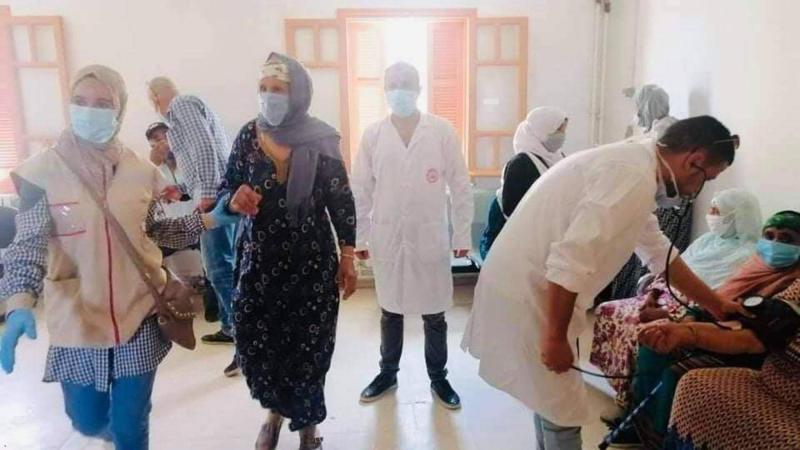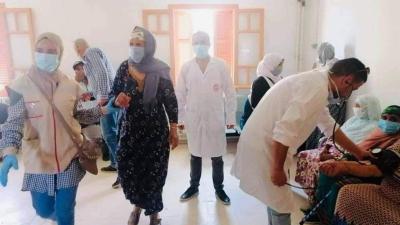Under the title "Health Disaster Approaches Tunisia.. Fears of the Red Zone," Sky News published a report on the epidemiological indicators in Tunisia, which are heading into the red zone. The report pointed out that health authorities have warned of a harsh fourth wave of the spread of the coronavirus in the country amidst a healthcare system nearing collapse, lacking equipment, and overburdened after months of fighting the virus.
The Tunisian Ministry of Health announced on Wednesday evening that it had detected six cases of the Indian variant of the COVID-19 virus after a series of partial genetic sequencing operations, according to informed sources within the scientific committee for combating the coronavirus pandemic. The committee indicated that there are suspicions regarding the presence of Brazilian variant cases following a surge in infections seen in several governorates in Tunisia, affecting even infants.
Sami El Mourali, a member of the scientific committee and head of the functional examinations and cardiopulmonary resuscitation department at Al-Rabita Hospital, stated in an interview with the Tunisian African News Agency on Wednesday about the possibility of the Brazilian variant of the coronavirus existing in Tunisia. He emphasized that a team of experts from the Pasteur Institute and Charle-Nord Hospital is currently working to complete the genetic sequencing to detect all recently discovered variants in Tunisia.
The Brazilian variant of the coronavirus is characterized by rapid transmission and a broader impact on younger age groups, which has been evident in recent infection trends noted in various governorates, especially in Kairouan in the central part of the country, where 11 infants were infected, and two of them died due to complications.
**Highest COVID-19 Infection Rate**
Last Monday, Tunisia recorded its highest daily COVID-19 infection rate with 2,478 cases, bringing the total infections to 387,773. The death rate from the virus has not dropped below 60 cases daily since April. As of June 21, the Ministry of Health reported more than 14,000 deaths due to COVID-19, and this number represents only reported cases.
Tunisia records 32% of positive cases from the total tests conducted daily, with the rate rising to 60% in several governorates that announced a full lockdown, including Kairouan, Siliana, Béja in the northwest, and Zaghouan south of the capital.
Furthermore, authorities have focused on establishing field hospitals to accommodate COVID-19 patients. Health Minister Fawzi Mehdi announced during a press conference on Tuesday the establishment of a field hospital in the Béja governorate to support local health efforts in caring for COVID-19 patients. In Zaghouan, several vocational training institutions have been converted into field hospitals due to the public hospital's inability to accommodate patients, while several tents have been set up in Kairouan to provide oxygen beds and medical care for the needy.
In the capital, Tunis Governor Chadhli Boualak warned on Wednesday that the epidemiological situation in the city is critical, indicating that exceptional measures might be taken to control the infection chains.
The coronavirus has disrupted economic and social life in the country, particularly in the hardest-hit governorates, leading to the closure of industrial units, suspension of market operations, and restriction of mobility to limit the chains of virus transmission.
This comes as the government faces significant criticism for its failure to manage the health crisis amid a slow vaccination process. On Wednesday, the head of the health committee in parliament, Elyachi Zammal, called for joint patrols between security and military forces to enforce the full lockdown, while other parliamentary deputies urged declaring affected governorates as closed military zones and requisitioning private clinics to accommodate COVID-19 patients.
The criticisms also relate to the progress of vaccination campaigns in the country since the Health Ministry has been unable to provide the necessary vaccines, with only about 600,000 citizens vaccinated out of a total of 5 million that Tunisia intends to vaccinate by the end of the current year.




